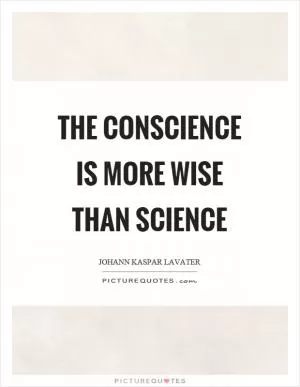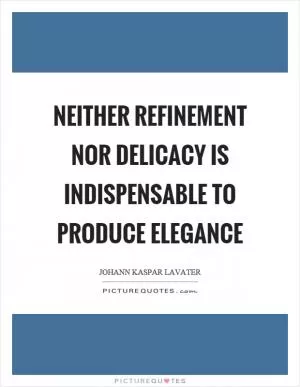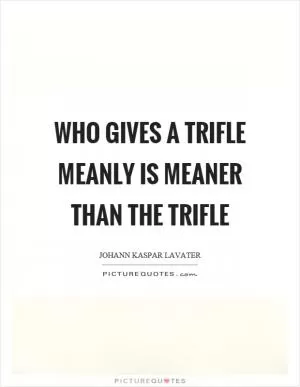His calumny is not only the greatest benefit a rogue can confer on us, but the only service he will perform for nothing

His calumny is not only the greatest benefit a rogue can confer on us, but the only service he will perform for nothing
Johann Kaspar Lavater was a Swiss poet, philosopher, and theologian known for his work in physiognomy, the study of facial features and their relation to character traits. He was a prominent figure in the late 18th century Enlightenment movement and his writings on morality and ethics were widely influential.One of Lavater's most famous quotes is, "His calumny is not only the greatest benefit a rogue can confer on us, but the only service he will perform for nothing." This statement speaks to the idea that when someone speaks ill of us or spreads false rumors about us, it can actually be a blessing in disguise. In other words, the slander and gossip of a dishonest person can reveal their true nature and intentions, allowing us to see them for who they really are.
Lavater believed that calumny, or slander, could be a valuable tool for self-discovery and personal growth. By facing false accusations and malicious gossip with grace and integrity, we can demonstrate our true character and strength of character. In this way, the actions of a rogue or deceitful individual can actually help us to become more self-aware and resilient.
Furthermore, Lavater's quote suggests that the rogue who spreads calumny does so out of a sense of malice or envy, rather than genuine concern for our well-being. By recognizing this, we can see through their deceit and manipulation, and protect ourselves from their harmful intentions.
Overall, Lavater's words remind us to be wary of those who seek to harm us through lies and deceit, but also to see the potential for growth and self-discovery in the face of adversity. By remaining true to ourselves and our values, we can rise above the slander and calumny of others, and emerge stronger and more resilient in the process.












 Friendship Quotes
Friendship Quotes Love Quotes
Love Quotes Life Quotes
Life Quotes Funny Quotes
Funny Quotes Motivational Quotes
Motivational Quotes Inspirational Quotes
Inspirational Quotes